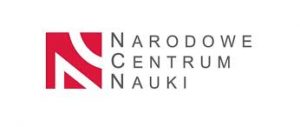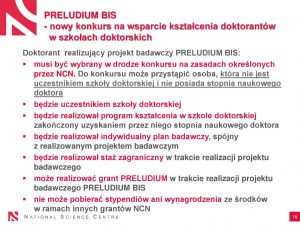The National Research Council (NCN) awarded a PRELUDIUM BIS project to Professor Marek Kwiek (2020-2024).
The NCN funded 100 PRELUDIUM BIS projects across all scientific disciplines, including 3 projects at AMU.
The project, “Research Productivity and Collaboration Patterns in Global Science. A Conceptual Approach“, will be funded in 2020-2024 and will lead to another doctoral degree. It will be conducted in the Center in collaboration with the AMU Doctoral School (Social Sciences).


Description: Scientific goal of the project
The goal of the project is to provide theoretical foundations for the changing, reciprocal relationships between research productivity (at the level of individuals, institutions, and countries) and collaboration patterns (at the same levels) in the emergent global science of the last two decades (2000-2021).
Global science, driven by scientists themselves and their research interests, exists parallel to, rather than replaces, traditional international science driven by national governments and their national or bilateral funding schemes. The empirical finding that the annual increases in scientific output in major Western European science systems in the last decade (2009-2018) come exclusively from internationally co-authored publications (Adams 2013) makes it highly promising to rethink traditional theories of collaboration in science. At the same time, another empirical finding that highly productive scientists are responsible for as much as 40-50% of all academic knowledge production (Abramo et al 2009) makes it highly promising to rethink traditional theories of research productivity.
A context for the revision of the two sets of theories in the doctoral dissertation is the globalization of science which is driven by the three new mechanisms (self-organization, preferential attachment, and global elite production) and which changes the overall global – cross-national and cross-institutional – division of labor in the academic enterprise.
The two working hypotheses are as follows: (1) research productivity is increasingly interconnected with new patterns of collaboration in science; and (2) the emergence of global science makes it necessary to rethink two traditional and overlapping sets of theories in the sociology of science: research productivity theories and collaboration theories.
The doctoral dissertation will address seven research questions.
(1) Are individual-level characteristics of research performance more important than its institutional-level characteristics (under the impact of global science)?
(2) Is academic knowledge production becoming more vertically stratified, by institutions, countries, and fields of research and development?
(3) What is the impact of international research collaboration on research productivity and the impact of research productivity on international research collaboration (reciprocal relationships)?
(4) To what extent does international research collaboration explain the massive growth in research output?
(5) What are the major cross-national collaboration networks as measured by publication quantity and (field-normalized) quality?
(6) How does the citation premium for international collaboration differ by scientific field? And
(7) What is the impact of global and networked science on research productivity on the one hand and research collaboration on the other hand?
Adopting a cross-national and cross-disciplinary perspective, key distinctions in the dissertation will be drawn between the European and non-European OECD countries and within Europe, between EU-15 and EU-13 countries (the six major fields of research and development used in OECD statistics will be consistently applied).
Research methodology
The general methodology comes from a new and swiftly developing area of quantitative studies of science; however, it will be supplemented with a mixed-methods approach due to the use of interviews (planned: 100, semi-structured, in-depth, national and international). Its methods, techniques and research tools and methods of results analysis will come from what is increasingly termed “computational social science” (Salganik 2018; Alvarez 2016); that is, social research in the digital age, with “big data” used for a study of global changes in publishing, citation or collaboration patterns (an estimated number of observations studied in the period: 30 million publications).
Consequently, the dissertation will be written at the intersection of social science and data science, with its central premise being that new datasets and opportunities to access and compute them (the digital age in higher education research and in quantitative studies of science) create new opportunities for social research – which were simply impossible in the recent past. Specifically, the project will be able to link surveys to big data sources and will combine survey data and administrative (especially register) data. Data will be collected from large indexing databases (both Clarivate Analytics and Elsevier Europe has been official partners in doctoral supervisor’s research projects so far). For more sophisticated computations performed on large-scale datasets, AMU cloud computing used in the Faculty of Mathematics and Computing will be applied.
Project literature
Abramo, G., D’Angelo, C. A., Caprasecca, A. (2009). The contribution of star scientists to overall sex differences in research productivity. Scientometrics. Vol. 81(1). 137–156.
Adams, J. (2013). The fourth age of research. Nature, 497(30 May 2013), 557–560.
Agrawal, A., McHale, J., Oettl, A. (2017). How stars matter: Recruiting and peer effects in evolutionary biology. Research Policy. Vol. 46(4). 853–867.
Aguinis, H., O’Boyle, E. (2014). Star Performers in Twenty-First Century Organizations. Personnel Psychology. Vol. 67(2). 313–350.
Alvarez, R.M. (ed.). (2016). Computational Social Science. Discovery and Prediction. Cambridge: Cambridge University Press.
Carrasco, R., Ruiz-Castillo, J. (2014). The evolution of the scientific productivity of highly productive economists. Economic Inquiry. Vol. 52(1). 1–16.
Fox, M.F. (2015). Gender and Clarity of Evaluation among Academic Scientists in Research Universities. Science, Technology, & Human Values. 40(4): 487-515.
Hermanowicz, J. (2012). The sociology of academic careers: problems and prospects. In: J.C. Smart, M.B. Paulsen (Eds.), Higher education: Handbook of theory and research 27. 207-248.
King, R. (2011). Power and networks in worldwide knowledge coordination: The case of global science. Higher Education Policy, 24(3), 359–376.
Kwiek, M. (2016). The European research elite: A cross-national study of highly productive academics across 11 European systems. Higher Education, 71(3), 379-397.
Kwiek, M. (2018a). Academic top earners. Research productivity, prestige generation and salary patterns in European universities. Science and Public Policy. 45(1). February 2018. 1–13.
Kwiek, M. (2018b). High Research Productivity in Vertically Undifferentiated Higher Education Systems: Who Are the Top Performers?. Scientometrics. 115(1). 415–462.
Kwiek, M. (2019). Changing European Academics. A Comparative Study of Social Stratification, Work Patterns and Research Productivity. London and New York: Routledge.
Kwiek, M. (2020a). What Large-Scale Publication and Citation Data Tell Us About International Research Collaboration in Europe: Changing National Patterns in Global Contexts. Studies in Higher Education. Vol. 45. On-line first April 10, 2020. 1-21.
Kwiek, M. (2020b). Internationalists and Locals: International Research Collaboration in a Resource-Poor System. Scientometrics. Vol. 125. On-line first April 28, 2020.
Kwiek, M., Roszka, W. (2020c). Gender Disparities in International Research Collaboration: A Large-Scale Bibliometric Study of 25,000 University Professors (under reviews in Journal of Economic Surveys).
Kwiek, M., Roszka, W. (2020cd). Gender-Based Homophily in Research: A Large-Scale Study of Man-Woman Collaboration (submitted).
Kyvik, S., and Aksnes, D. W. (2015). Explaining the increase in publication productivity among academic staff: A generational perspective. Studies in Higher Education. 40(8). 1438–1453.
Latour, B., & Woolgar, S. (1986). Laboratory Life. The Construction of Scientific Facts. Princeton: Princeton University Press.
Melguizo, T., Strober, M. H. (2007). Faculty salaries and the maximization of prestige. Research in Higher Education. Vol. 48(6). 633–668.
Olechnicka, A., Ploszaj, A., & Celinska-Janowicz, D. (2019). The geography of scientific collaboration. London and New York: Routledge.
Salganik, M.J. (2018). Bit by bit. Social research in a digital age. Princeton: Princeton University Press.
Wagner, C. S. (2008). The new invisible college. Science for development. Washington, DC: Brookings Inst. Press.
Wagner, C. S. (2018). The collaborative era in science. Governing the network. Cham: Palgrave Macmillan.
Wagner, C. S, & Leydesdorff, L. (2005). Network structure, self-organization, and the growth of international collaboration in science. Research Policy, 34(10), 1608–1618.
Wagner, C. S., Park, H. W., & Leydesdorff, L. (2015). The continuing growth of global cooperation networks in research: A conundrum for national governments. PLoS ONE, 10(7), 1–15.
Whitley, R. (2000). The intellectual and social organization of the sciences. Oxford: Oxford University Press.
Woldegiyorgis, A. A., Proctor, D., & de Wit, H. (2018). Internationalization of research: Key considerations and concerns. Journal of Studies in International Education, 22(2), 1–16.
Yemini, M. (2019). International research collaborations as perceived by top-performing scholars. Journal of Studiem in International Education, 1–16 (online first November 9, 2019).




